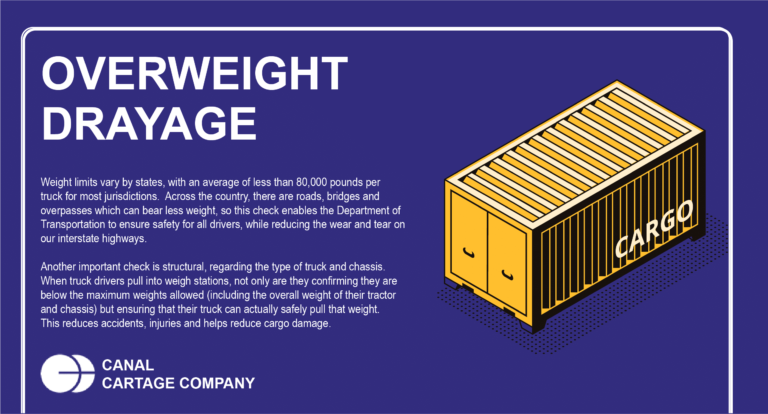
OVERWEIGHT FREIGHT CAPACITIES
Visit Our Warehouse in La Porte, TX
For trucks with two or more axles, there are maximum size and weight restrictions that are required to ensure compliance for Federal and State laws.
The most important reason for weighing logistics trucks is to ensure highway safety. Interstate highways and bridges have weight thresholds and structural limitations. If there was no restriction to the amount of weight a truck could carry, it would quickly degrade the quality of highways and roads. Our overweight freight department knows what it takes to move heavy cargo.
Overweight Freight Regulations
Weight limits vary by states, with an average of less than 80,000 pounds per truck for most jurisdictions. Across the country, there are roads, bridges and overpasses which can bear less weight, so this check enables the Department of Transportation to ensure safety for all drivers, while reducing the wear and tear on our interstate highways.
Another important check is structural, regarding the type of truck and chassis. When truck drivers pull into weigh stations, not only are they confirming they are below the maximum weights allowed (including the overall weight of their tractor and chassis) but ensuring that their truck can actually safely pull that weight. This reduces accidents, injuries and helps reduce cargo damage.
The regulations for overweight freight capacities freight in Texas mean that a truck company can be fined on a per pound basis for loads that exceed the maximum safe limitations. The fines for overweight capacity in our state is:
- Less than 2,500 lbs. over limit ($100 – $500)
- 2,500 to 5,000 lbs. over limit ($500 – $1,000)
- 10,001 to 20,000 lbs. over limit ($1,000 – $2,500)
- 20,001 to 40,000 lbs. over limit ($5,000 – $7,000)
- More than 40,000 lbs. over limit ($7,000 – $10,000)

We Safely Accommodate Overweight Freight
Canal Cartage has invested in modifying trucks in our fleet making them “lightweight” or “featherweight” as part of our commitment to safely moving your heavyweight freight. These trucks are specially built to accommodate heavy loads and are stripped of unnecessary equipment and they typically have a smaller engine. But the design of the truck allows it to pull heavy or overweight loads safely.
Are you importing or exporting overweight cargo from Port Houston? Contact our team at Canal Cartage for assistance and a competitive rate.




